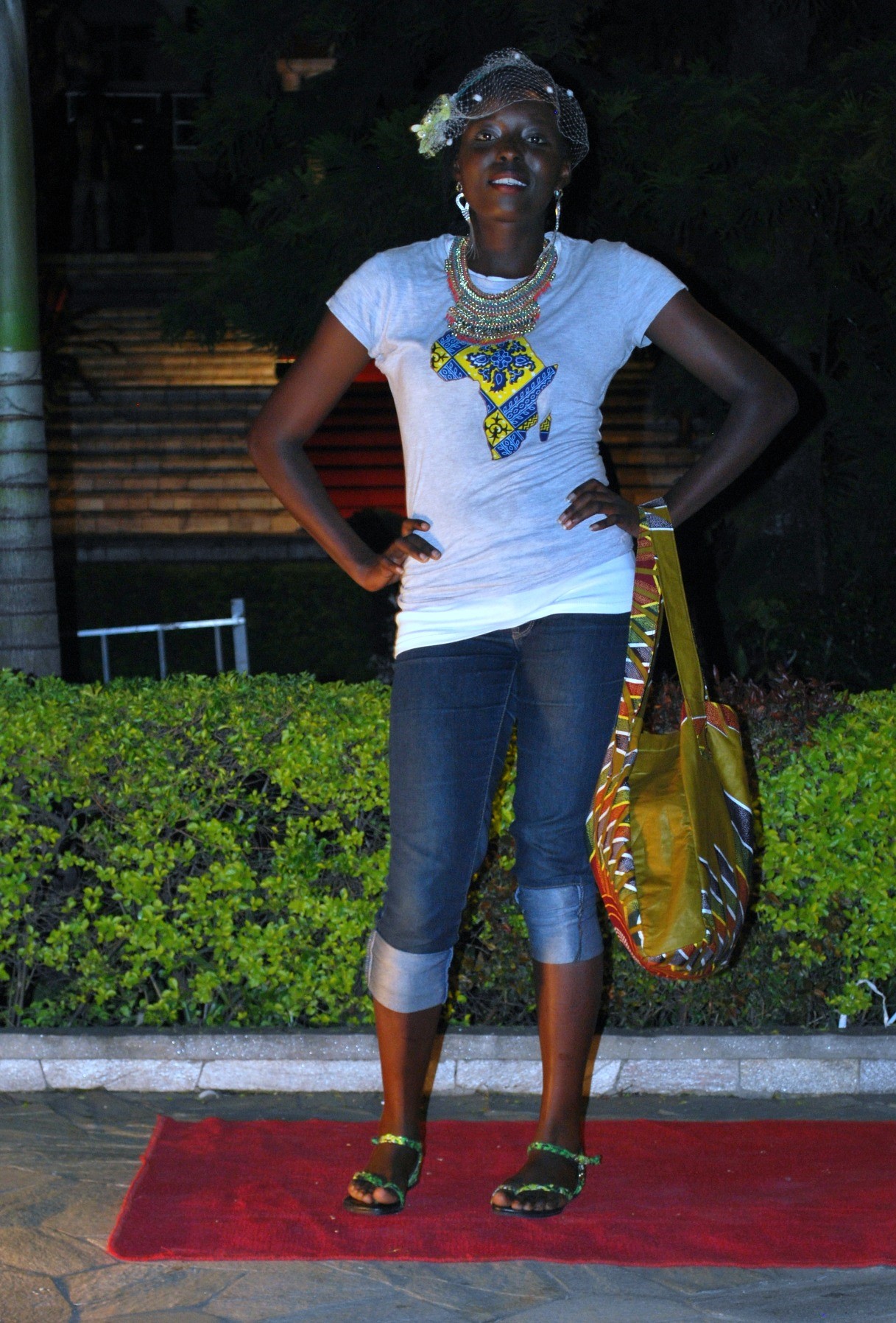
Editor's Note: this post was written by guest blogger Danielle Allyn. Danielle is a student at the University of North Carolina, Chapel Hill. She is currently spending her summer interning for Mamafrica Designs in Bukavu, DRC, while conducting research for her senior thesis.
“In 5 years, I want to be living so well that my husband [who rejected me] begs me to take him back. I want the opportunity to tell him no, and to tell him that I am better off making a life for myself and my family.” Mamafrica artisan Asifiwe, vibrant and full of life, is one of the youngest student seamstresses working at Mamafrica’s Ushindi center in Bukavu, DR Congo, the provincial capital of South Kivu. Each day, the women of Mamafrica arrive promptly at 8 am (some of them traveling up to two hours on foot) and begin crafting Mamafrica’s handmade clothing and accessories from local kitenge fabric. The women learn to sew and earn a monthly income through their labor. In a town with nearly 80% unemployment for women, Mamafrica’s income-generating production should not go unnoticed. But the center is more than a source of training or livelihood for these women and their children. Within the walls of the Ushindi Center, Bukavu’s Mamas have created for themselves a community of beauty, strength, and resilience.
“I once lived in an area where I faced discrimination because of my illness,” artisan Nabintu Charlotte says. “But when I joined Mamafrica’s sewing program, I began to realize that I truly was a person of value. I can overcome hardship now because I accept myself.”
Mamafrica offers monthly literacy programs, trauma counseling, healing arts, and educational programs for the families of each artisan. Incoming members are screened according to set criteria. Most of the women currently employed at Mamafrica are survivors of sexual violence and have been displaced from various villages in South Kivu province due to conflict and instability. Forced to flee their homes and fields to ensure their personal safety and that of their children, these women face an unfriendly job market after arriving in Bukavu. Additionally, cultural norms perpetuate the rejection of sexual violence survivors. It is not uncommon for a survivor to find herself abandoned not only by her husband but by her entire extended family, left to feed and care for her children alone.
Nabintu Charlotte’s reflections on self-worth are at the core of Mamafrica’s philosophy. By providing the conditions for its members to thrive socially, psychologically, and economically, Mamafrica empowers its artisans to experience the sort of self-fulfillment that only comes through independence. “I am proud of the intelligence that enables me to work. I am proud of my sewing ability, because through sewing I can provide for myself and my family,” Mamafrica artisan and assistant sewing instructor Nabintu Battindwa explains.
The majority of Mamafrica’s artisans are not new to skilled labor. Many hail from rural villages throughout South Kivu province and began cultivating bananas, cassava, and maize from a young age. Nearly two-thirds of Congolese citizens earn their livelihoods through agricultural production. Forced to leave behind fields, homes, and families, many of our artisans learned to survive through selling fruits or clothing in Bukavu’s many bustling markets or baking mandazi (Congolese donuts) for family celebrations. In the face of minimal social support and economic hardship, however, Mamafrica’s model provides a sustainable, comprehensive alternative for the women and their families. The center offers sewing students a way forward into recovery and prosperity. Some artisans dream of perfecting their sewing skills: “I want to master the art of sewing so that I can become a sewing teacher, and one day purchase my own sewing machine,” the young Anastasia says.
Many artisans dream of expanding their knowledge in other areas. Yvonne wishes to learn computer skills, while Mapenzi hopes to one day earn her driver’s license. Whatever her aspirations, the Mamafrica Ushindi Center offers a platform for the personal growth and healing of each Mama. More than a building, the center offers a second chance at peace, security, and family for each of its employees.
In a web of complex global supply chains, few consumers can say that they share personal relationships with the artisans who craft their clothing and accessories. Thanks to my summer in Bukavu, South Kivu, DR Congo, I am richer for the relationships I now have with the producers of my clothes. I have laughed with the jovial Asifiwe, watched Rachel cook fufu and meat for the Mamas and their children, and translated the refrain from the popular Beatle’s number “All You Need is Love” into Kiswahili (Unahitaji Upendo Tu) so that we could all sing along during work hours. Mamafrica Designs is fair trade at its finest. When you purchase from Mamafrica, you are investing not only in your wardrobe,but in the transformation of women, families, and communities.
(See below for a few highlights from our summer line, on display at the Salaam Kivu International Film Festival hosted by Yole!Africa in Goma)
Created with flickr slideshow.
Photo credits: Danielle Allyn

